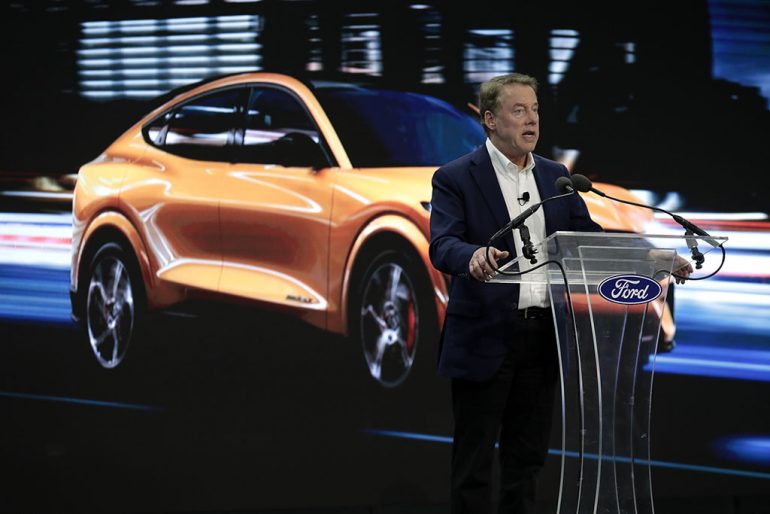
Ford has made the unexpected decision to temporarily halt construction on its $3.5 billion electric vehicle battery plant in Michigan. This surprising move comes as the automaker faces ongoing challenges in its contract negotiations, particularly with the United Auto Workers (UAW) union.
The company’s decision to pause work on the battery plant has ignited criticism from UAW President Shawn Fain. He characterized Ford’s announcement as a “shameful, barely-veiled threat” to cut jobs. Fain emphasized that the union is advocating for a just transition to electric vehicles, while Ford appears to be prioritizing cost-cutting measures.
Ford has been in protracted negotiations with the UAW, repeatedly increasing its offers without reaching an agreement. The fate of the battery plant’s workers has become a focal point in these talks among the Detroit Three automakers.
In explaining its decision, Ford stated that it is temporarily suspending construction and expenditure on the Marshall project until it can ensure the competitive viability of the plant. The company did not specify the exact reasons behind this move but cited several considerations. Ford emphasized that no final decision has been made regarding its planned investment in the facility.
President Joe Biden is set to show his support for striking workers at the Detroit Three automakers by joining a UAW picket line during his visit to Michigan. Ford had previously announced its plans to build the battery plant in Michigan, with the goal of producing batteries domestically to attract U.S. customers to cost-effective technology developed in China in partnership with CATL.
Michigan Governor Gretchen Whitmer expressed optimism about the situation, affirming that Ford’s decision represents a pause rather than a complete withdrawal from the project. She urged continued negotiations between the Big Three automakers and the UAW for the benefit of Michigan’s workforce.
The wage issue has emerged as a key point of contention, with the UAW and some members of Congress advocating for equal compensation for workers in battery plants compared to those in assembly and engine facilities.
On the legislative front, Republican lawmakers in Congress have been scrutinizing Ford’s battery plant plans, citing concerns about potential U.S. tax subsidies benefiting China and creating dependence on Chinese technology. Representative Mike Gallagher, the Republican chair of a House select committee on China, welcomed Ford’s decision as a “crucial first step” and called for a complete cancellation of the deal with CATL.
Ford’s financial outlook in the electric vehicle sector has faced challenges, with the company forecasting a full-year loss of $4.5 billion on its EV unit, an increase of 50% from previous projections. Despite this, Ford still intends to expand its sales of gas-electric hybrids significantly over the next five years.
The industry is closely monitoring the implementation of new regulations concerning future EV tax credits, particularly in relation to battery production decisions. The Inflation Reduction Act of 2022, which Congress passed, stipulates that future consumer EV tax credits will be denied if any battery components are manufactured or assembled by a “foreign entity of concern.” Ford has sought clarification on whether the Marshall plant’s batteries would be subject to these restrictions, expressing concerns that an overly broad interpretation could hinder the availability of clean vehicle credits.
Lastly, some Michigan Republicans have raised questions about the planned state incentives of $1.7 billion for the Marshall plant, which Ford anticipates will employ 2,500 workers. These concerns add another layer of complexity to the ongoing debate surrounding the future of Ford’s battery plant in Michigan.

Mike Floyd is a finance executive by trade and a car enthusiast at heart. As a CFO with a keen eye for detail and strategy, Mike brings his analytical mindset to the automotive world, uncovering fresh insights and unique perspectives that go beyond the surface. His passion for cars—especially his favorite, the Porsche 911, fuels his contributions to Automotive Addicts, where he blends a love for performance and design with his professional precision. Whether he’s breaking down industry trends or spotlighting emerging innovations, Mike helps keep the site both sharp and forward-thinking.